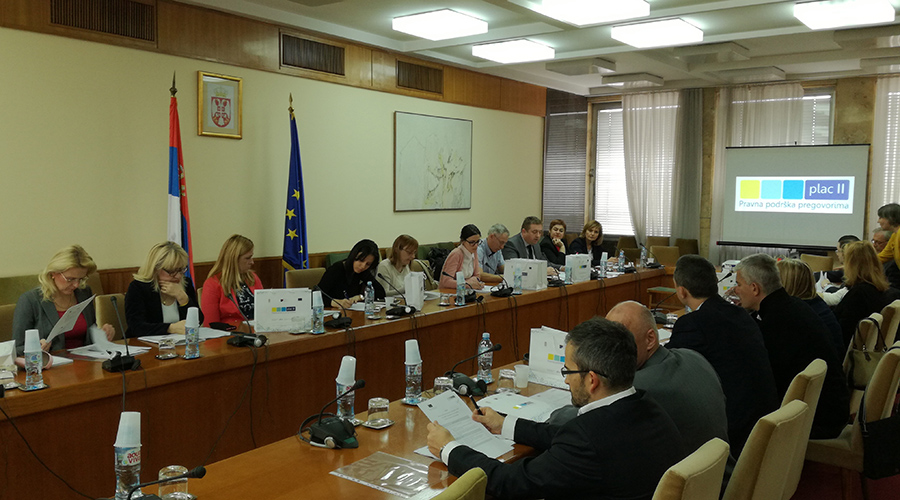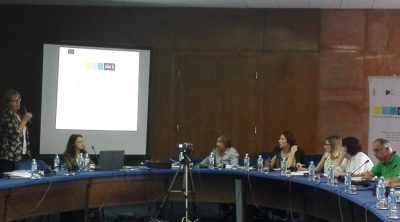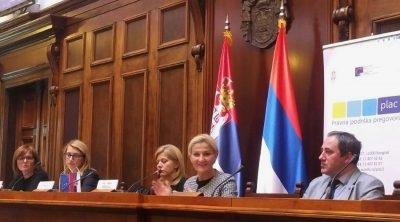Considering the complexity of the issues relating to prevention of money laundering and terrorism financing and inter‐relations among negotiating chapters, the PLAC II project provided support to the Administration for Prevention of Money Laundering (APML) in this area. The assistance focused on improving the understanding of the intentions of the Fourth AML (anti‐money laundering) Directive and implications of further liberalisation of short‐term capital movements on the system for prevention of money laundering and terrorism financing.
The participants of the workshop “Prevention of Money Laundering in Legal and Practical Terms” organised on 28 April, were familiarised with legal and practical aspects of prevention of money laundering and terrorism financing with the assistance of two PLAC II project experts. Talking about the need for preventative money laundering legislation, Paul Barnes presented the forms and effects of money laundering, as well as the impact of anti-money laundering regulation. Pavlos Masouros focused on examples of experiences of EU Member States in transposing the Fourth AML Directive, as well as on cross-cutting issues: AML/CFT (counter‐financing of terrorism) in the negotiating chapters.
Relevant EU legislation:
- Implications of further liberalisation of capital movements on the Serbian system for prevention of money laundering and terrorist financing including examples of EU member states’ experiences
- EXAMPLES OF EXPERIENCES FROM MSs IN TRANSPOSING THE 4TH AML DIRECTIVE & CROSS-CUTTING ISSUES RE: AML/CFT IN THE NEGOTIATING CHAPTERS




